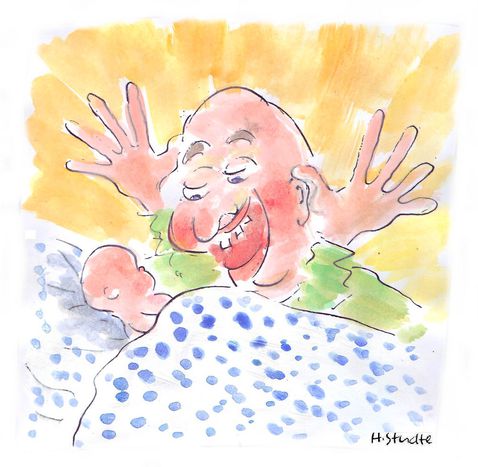
Baby language
Published on
Translation by:
Paulina DominikScientists and parents were shaken by a recent discovery: newborns cry in tune with the melody line that they have most often heard while still in their mothers’ placenta. To that, we say ga ga - baby phrases of the week
While scientists from the University of Wuerzburg have made us familiar with secrets of newborns, we have diagnosed a serious disorder among adults: a significant decrease in their IQ levels in the company of toddlers. Parents and other adults do their best to keep up with their children: I'd bet on seeing someone who has not seen how mature and sensible people behave as if they were under the influence of kryptonite when they are in the company of toddlers. Maybe that can be considered the reason for their constant tendency to babble instead of talking in a normal language. Take when a baby hurts him or herself. The European imagination simply runs wild: in baby language a wound can be called bua (in Italian), pupa (in Spanish), bobo (in French) or kuku (in Polish). Or the ways you catch the attention of a toddler: Spaniards usually say ajo, ajo whereas the Brits prefer Ga ga and eeeny meny, after a rhyme where they coo away with babys toes:
Eeny, meeny, miny, moe Catch a baby by the toe If it squeals let it go, Eeny, meeny, miny, moe
The Germans show off a bit more creativity in baby language. The song Wadde hadde du de da? ('What’s happened?' in baby language) performed by Stefaan Raab not only represented Germany in the Eurovision song contest in 2000, but was also awarded fifth place.
Translated from Papu, lulu i kuku



